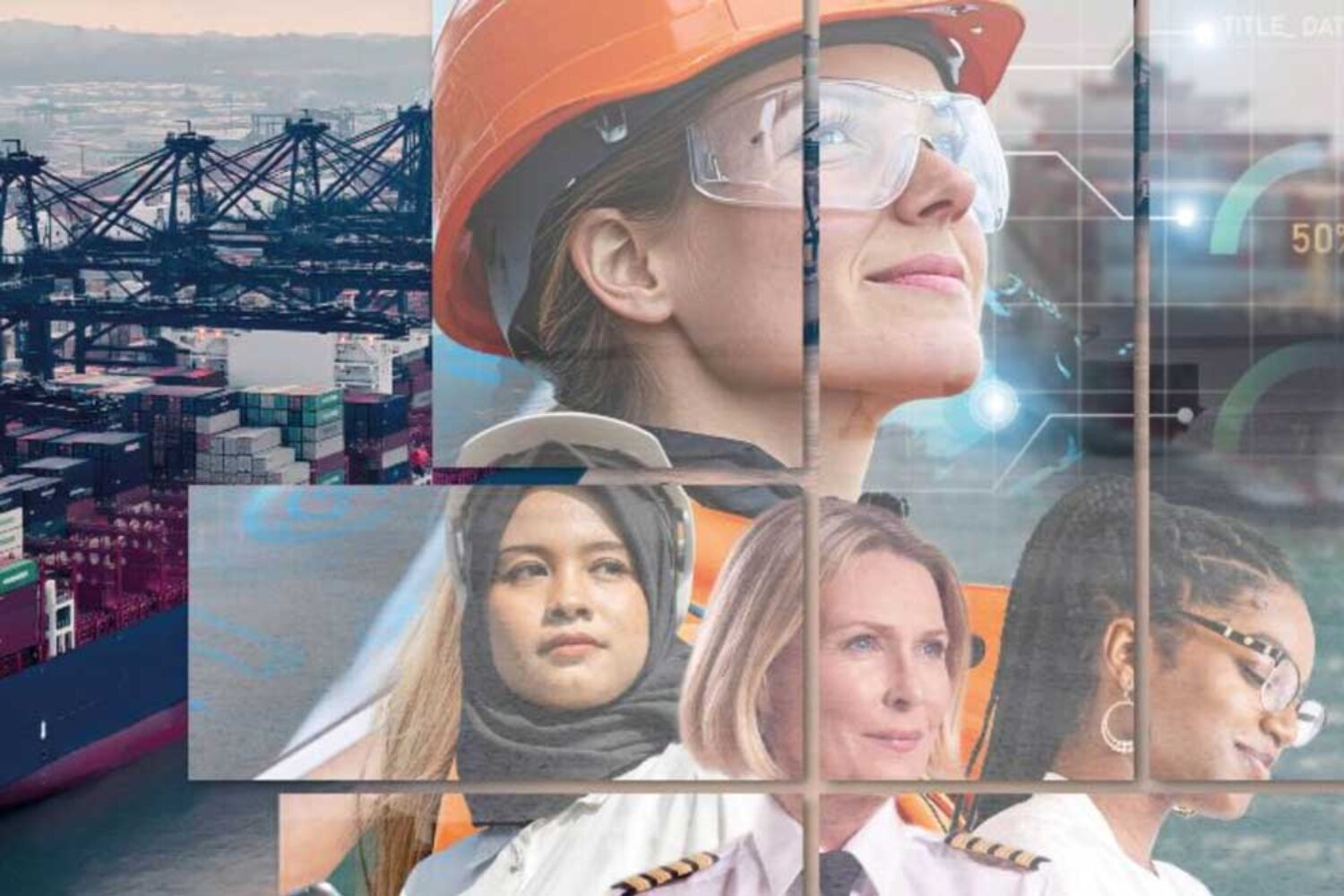Women are still a minority among seafarers in the shipping industry, as a new joint study by the IMO and WISTA shows.
Although there are significantly more women working in the maritime sector today than in 2021, their relative share in the industry has decreased. “There is still a lot to do,” says IMO Secretary-General Arsenio Dominguez.
The study “Women in Maritime 2024” (Women in the Maritime Industry) therefore reveals persistent gender inequality in the shipping industry. The publication has renewed calls for action to level the playing field and improve the treatment of women. It is the second joint study by the International Maritime Organization (IMO) and the Women’s International Shipping & Trading Association (WISTA). The report presents data on the proportion and distribution of women working in the maritime sector from IMO member states and the private sector.
The proportion of female seafarers is declining
In 2024, a total of 176,820 women were employed in the maritime industry, on paper initially a significant increase on 2021. Four years ago, 151,979 women worked in shipping. Nevertheless, the relative number of women fell from 26% to just 19%. This is due to the fact that more countries have joined the IMO in recent years.
In the national maritime authorities, women make up 19% of the workforce, in the private sector (excluding seafarers) the figure is only 16%. The imbalance at sea is particularly drastic: only one in a hundred people working on board a ship is a woman.
“The increased participation of Member States and industry in the survey is a welcome sign of growing commitment to gender issues,” said IMO Secretary-General Arsenio Dominguez. “However, there is still work to be done. The proportion of women remains disproportionately low and women make up only a small part of the maritime workforce. This underlines the urgent need for continued commitment and action. We must redouble our efforts to promote a truly diverse and inclusive maritime industry.”
The report provides insights into leadership, workforce participation, policy and education in both the public and private sectors, and reveals significant differences between sectors of activity. A higher proportion of women was found in emerging sectors such as environmental, social and governance (ESG) and decarbonization services. Other segments, such as bunker and legal services, recorded a decline.

“The Women in Maritime survey was developed to provide meaningful data on the state of gender diversity in shipping and provide guidance on the areas that require more attention,” explained Elpi Petraki, President of WISTA International since 2022. The aim is to inspire change and call for action. “The recruitment, retention and advancement of women – both on land and at sea – remains a priority going forward. However, the new data also shows that opportunities for women across the industry remain limited due to barriers such as gender stereotypes, workplace safety concerns, a lack of family-friendly policies and the persistent gender pay gap.”
WISTA President Elpi Petraki reinforced this in a recent interview on the HANSA.newscast, highlighting that, while more women are visible in the maritime sector, “we still have a long way to go” – especially when it comes to decision-making roles. She emphasized that “we need more women in boardrooms, not just in support functions,” and underlined the importance of the new data: “If we had these numbers 30 years ago, we could have made more targeted change by now.” According to Petraki, true inclusion will only be possible when “every port, every agency, every academy takes part” in the effort – and when gender equity is treated as a core part of shipping’s transformation, including in areas like decarbonisation and digitalisation.
Listen to the full interview with Elpi Petraki on HANSA.newscast here:
#52 WISTA International – Elpi Petraki on Leadership, Diversity, and Sustainability













